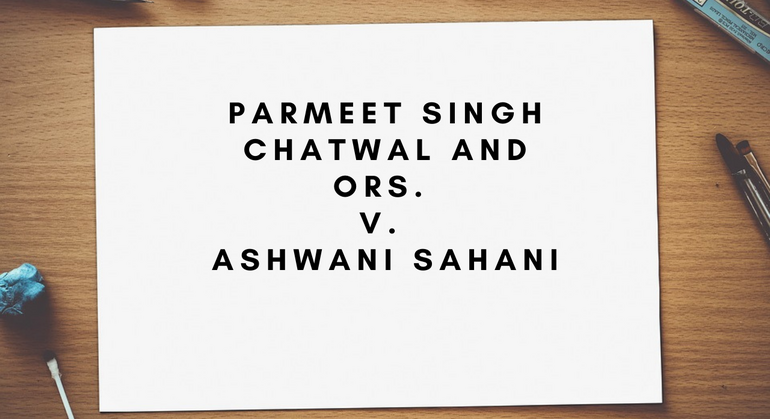

Parmeet Singh Chatwal and Ors. v. Ashwani Sahani
In the present case, the petitioner was purchasing fabrics in accordance with the specifications of the respondent. The respondent raised bills in the name of the petitioner for the fabrics so purchased. The respondent stated that according to his record, there was an outstanding payment of Rs. 15,52,964 which was payable by the petitioner for his purchases. It was also submitted by the respondent that delayed payment attracted interest at the rate of twenty-four percent per annum. Therefore, the respondent claimed a sum of Rs. 11,18,124 on account of interest.
The petitioner meanwhile issued a cheque for Rs. 1,00,000, which was returned unpaid. As a result, the respondent invoked arbitration for recovery of the outstanding balance from the petitioner. The arbitral tribunal decided in favor of the respondents.
Aggrieved by the award rendered in favor of the respondent, the petitioner filed a petition under section 34 of the Arbitration Act to challenge the award and the arbitration agreement itself. It was the case of the respondent that invoices raised against the petitioner in their ordinary trade had mentioned an 'arbitration clause' which was produced at the bottom of an invoice in a small font and read as follows, "We are a member of Delhi Mercantile Association in case of any dispute its decision is final and binding for both the parties". Similarly, another set of invoices had the following clause printed on it, "all disputes regarding this invoice will be settled by Delhi Hindustani Mercantile Association and will be binding on both parties". Thus, the respondents contended that the arbitration agreement was very much enforceable and valid.
Issue
The primary issue for consideration here was whether in the present dispute, there is an arbitration agreement between the parties at dispute and whether the plaintiff is entitled to recover his claimed amount along with interest from the defendants.
Judgment
The Court reiterated the decision of the Apex Court in Punjab State v. Dinanath, wherein it was held that on a basic perusal of the definition of the arbitration agreement, it would clearly show that an arbitration agreement is not required to be in any particular form. What is needed to be ascertained is whether the parties have agreed that if any dispute arises between them in regard to the subject-matter of the contract, such dispute shall be referred to arbitration? The Court noted that on facts, there is no record of any findings in regard to the intention of the parties to agree to settle their dispute through arbitration. The award merely concluded the existence of an arbitration clause without giving any reasons.
The Court was further of the view that the question of the agreement to arbitrate aside, the clause itself was vaguely structured. Thus, such a clause would not be an arbitration agreement, and the parties were not ad idem in this respect. As there is no arbitration agreement, the award and the proceedings shall be vitiated. Even otherwise, the claim of the petitioner was held to be barred by limitation. Hence, It is clear that there is no arbitration agreement among the parties. Even otherwise, the claim of the petitioner is barred by limitation, and the Award to the extent that it ignores this aspect is contrary to the fundamental policy of Indian Law. The award has also been passed contrary to the statutory provision. Consequently, set aside the award. The petition is permitted accordingly.



